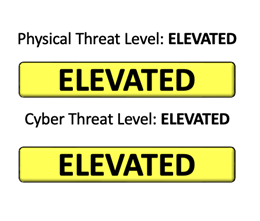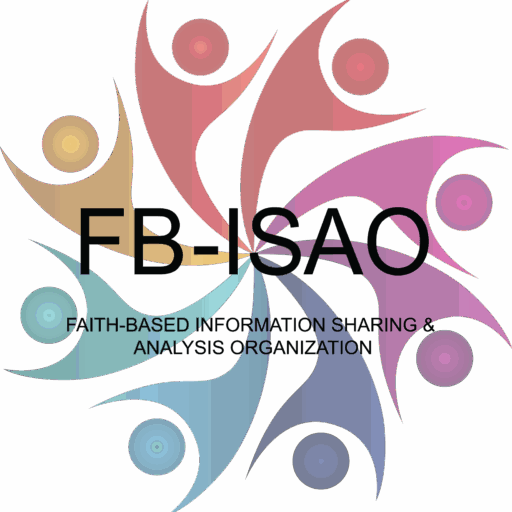Faith-Based Security Headlines
These updates are shared to help raise the situational awareness of Faith-Based organizations to best defend against and mitigate the impacts from all-hazards threats including physical security, cybersecurity, and natural disasters.
Iran provides warning before attack on US base in Qatar. No Americans killed; Trump announces ceasefire
Over the past week, tensions in the Middle East have rapidly escalated following a U.S. strike on Iranian nuclear facilities. Iran then launched a retaliatory attack on the United States air base in Qatar. The Iranian regime has intensified its rhetoric and signaled the possibility of asymmetric retaliation, including cyberattacks and threats against U.S.. Despite these rising hostilities, President Trump announced a tentative ceasefire agreement between Israel and Iran on June 23rd but both sides have claimed the other has broken the ceasefire agreement. Live updates from CNN and the Wall Street Journal underscore that the situation remains highly volitive with Trump saying today he does not want a “regime change in Iran because he does not want to see “chaos”. The U.S. State Department has issued urgent departure guidance for American citizens currently in Israel or Iran, emphasizing the need for immediate evacuation due to deteriorating security conditions. In response to the crisis, the Jewish Federations of North American have allocated $10 million in emergency funding to support humanitarian efforts in Israel.
Analyst Comments: The recent U.S. strike on Iranian nuclear facilities and the escalating Israel-Iran tensions present significant challenges for faith-based organizations, especially those who may be tied to Jewish, Christian, or Muslim communities. These groups face rising security risks and potential cyber threats. The Jewish Federations’ $10 million emergency aid highlights the vital role these organizations play in support and crisis coordination. Best practices for faith-based organizations consist of strengthening security protocols, monitoring for misinformation, and staying closely connected to government updates to ensure community safety and resilience.
Iran’s cyber forces have many ways to attack U.S., experts warn
Following the U.S. strike on Iranian nuclear facilities and the broader Israel-Iran conflict, cyber activity linked to Iranian actors has surged, targeting both government and private entities. According to the Washington Post, U.S. officials are bracing for a wave of Iranian cyberattacks aimed at critical infrastructure, with current activity suggesting increased reconnaissance and probing behavior. Hacktivist groups sympathetic to Iran have already launched DDoS attacks against American targets, as noted by Cyble while ReliaQuest reports a rise in Iranian-aligned threat actor operations, including wiper malware. Censys provides insight into Iran’s internal digital posture, highlighting heightened domestic censorship and surveillance that often precede coordinated offensive cyber operations. Meanwhile Group-IB warns a broader regional cyber escalation, with multiple advanced persistent threat groups exploiting the conflict for opportunistic or retaliatory attacks. Together, these developments signal a complex and rapidly evolving cyber threat landscape.
Analyst Comments: The surge in cyber activity tied to the Iran-Israel-U.S. conflict presents a growing risk for faith-based organizations, many of which are seen as soft targets for politically or ideologically motivated cyberattacks. With hacktivist groups already launching DDoS attacks and nation-sate actors increasing reconnaissance efforts, it is suggested to adopt basic cybersecurity hygiene like multi-factor authentication, regular software updates, phishing awareness training, and backup protocols alongside engaging with local and federal cyber threat-sharing communities to receive timely alerts.
New report – major developments and trends on terrorism in Europe in 2024
Eurpoal’s latest report, the European Union Terrorism Situation and Trend Report, offers a comprehensive overview of terrorism across the EU in 2023. It recorded 120 terrorist incidents in seven Member states, 98 completed, 9 failed, and 13 foiled, with a marked increase from previous years. Most separatist attacks were in Corsica, followed by left-wing and jihadist violence. Jihadist attacks, though fewer, were the deadliest, causing six deaths and 12 injuries. Authorities made 426 terrorism-related arrests, mostly linked to jihadist activity, and 290 convictions were issued across 14 EU countries. The report warns of growing threats as terrorist groups exploit political unrest, target through propaganda, and use encrypted tech and AI for recruitment and coordination.
Analyst Comments: The findings from Europol’s TE-SAT 2024 report underscore the need for heightened awareness and preparedness. Faith-based organizations can be potential targets for ideologically motivated violence, so it is important to remain aware and vigilant. With terrorist groups exploiting global political tensions and increasingly targeting individuals through propaganda, houses of worship and affiliated institutions are at risk for physical and cyber threats. Institutions should prioritize situation awareness, establish clear emergency protocols, and maintain strong ties with local law enforcement and counterterrorism partners. Additionally, given the use of encrypted platforms and AI for radicalization, organizations should promote digital literacy and resilience within their communities.
Weekly Security Sprint EP 115. Constantly evolving geopolitical events, Al gone bad, and heat domes
The Gate 15 Security Sprint is a weekly rundown of the week’s notable all-hazards security news, risks and threats and some of the key focus areas for organizations to consider behind the headlines. Gate 15 team members discuss physical security, cybersecurity, natural hazards, health threats and other issues across our environment.
In this week’s Security Sprint Dave and Andy covered the following topics:
- WaterISAC to host tabletop exercise to strengthen utility resilience
- Maryland Man Charged with Mailing Threatening Communication to Jewish Organizations, Including a Jewish Institution in Philadelphia
- DHS NTAS Bulletin
- Top AI models will lie, cheat, and steal to reach goals, Anthropic finds.
- A potent heat dome is building over the US, sending temperatures into the triple digits
The above Gate 15 Weekly Security Sprint website also provides links to many security-related items of interest.
Information on other Gate 15 podcasts can be found here.
Get the Daily Awareness Post Delivered to your Email!
More Faith-Based Stories
Police identify Wayne church gunman, say mental health crisis may have played role
Church security team member speaks after stopping armed man at Wayne church service
Wayne church shooting suspect had religious concerns, debated with pastor before attacking ceremony
Churches focus on safety following Metro Detroit shooting
Suspect admits to crucifying pastor at New River home, had others on hit list
Tracker: 500 Attacks on U.S. Catholic Churches Since May 2020.
Justice Department Sues Washington State Over its new anti-Catholic law, Senate Bill 5375
Protests: On July 17th, March in Peace. Act in Power & No Kings protest organizers announce July 17 as next demonstration
Health-ISAC: Possible Cascading Security Impacts of US Strikes on Strategic Iranian Nuclear Targets
Cyber Command supports strikes on Iran’s nuclear facilities, but officials keep details under wraps
WhatsApp banned on US House of Representatives devices; memo shows
How crime is accelerated by AI
How to conduct an effective post-incident review
More Security-focused Content






